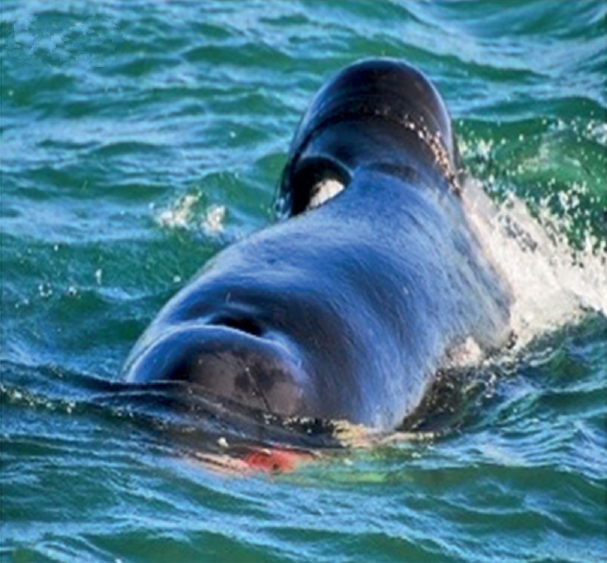A male killer whale was observed for the first time last year in the act of dispatching and extracting the liver from a great white shark – and it did so unaided, taking only two minutes to complete its task, as detailed in a new study.
“The astonishing predation, off the coast of Mossel Bay, South Africa, represents unprecedented behaviour underscoring the exceptional proficiency of the killer whale,” says ichthyologist Dr Alison Towner of Rhodes University, leader of the team whose observations appear in the African Journal Of Marine Science.
The incident occurred in June 2023, but another study by Dr Towner and her team published in the same journal the previous year had described how the pair of orcas dubbed Port and Starboard had been hunting and killing great whites off South Africa since 2017.
Their reign of terror had driven large numbers of the sharks away from their natural aggregation sites, marking the start of a downturn for the South African cage-diving industry. UK shark expert Richard Peirce had already written exclusively about the situation on Divernet in early 2018.
The male orca Starboard (the pair were named for the way their respective dorsal fins flopped over) is the same one who carried out the 2023 solo attack.
Lipid-rich livers
Killer whales are associated with hunting in packs, enabling them to surround large prey such as seals, sea-lions, other whales and sharks and use their combined speed and strength to catch them. They had been seen hunting solo, but never before with great whites as the victims.

“As previously in South Africa, the orcas are exhibiting a strong preference for extracting and consuming the lipid-rich livers of white sharks – a specialised feeding behaviour,” explains Towner, who has studied great whites’ movement patterns through their tagging data for the past 17 years. “Starboard was observed preying on a 2.5m juvenile white shark, later carrying the shark’s liver in its mouth past a boat.”
More than one great white was killed during the incident, because a second 3.5m carcass was later found nearby. “The study raises critical questions about the impact of killer whale predation on shark populations in South Africa,” says Towner.
“The observations reported here add more layers to the fascinating story of these two killer whales and their capabilities,” commented whale expert Dr Simon Elwen, founding director and principal scientist at Sea Search Research & Conservation.
“As smart, top predators, killer whales can rapidly learn new hunting techniques on their own or from others, so monitoring and understanding the behaviours used here and by other killer whales in South Africa is an important part of helping us understand more about these animals.”
“Upon reaching Mossel Bay’s Seal Island, the scent of shark-liver oil and a noticeable slick indicated a recent kill,” was how eyewitness Esther Jacobs of marine conservation body Keep Fin Alive described the incident. “Tracking Port and Starboard near the island, they remained separated.
“Witnessing a white shark’s fin break the surface initially sparked excitement, but that turned to a sombre realisation as Starboard swiftly approached. The moment Starboard rapidly preyed on my favourite shark species was both devastating and intensely powerful.”
Profound impact
“Over two decades of annual visits to South Africa, I’ve observed the profound impact these killer whales have on the local white shark population,” commented study co-author Dr Primo Micarelli of the Shark Studies Centre and Siena University.
“Seeing Starboard carry a white shark’s liver past our vessel is unforgettable. Despite my awe for these predators, I’m increasingly concerned about the coastal marine ecology balance.”
According to the study the incident “underscores the urgent need for adaptable conservation strategies and vigilant ecological monitoring amidst changing environmental conditions”.
Also on Divernet: Great white shark tourism in South Africa in jeopardy as orcas attack sharks, When hunter becomes prey, What scares off great whites?, White sharks assemble – in new Atlantic hotspot

